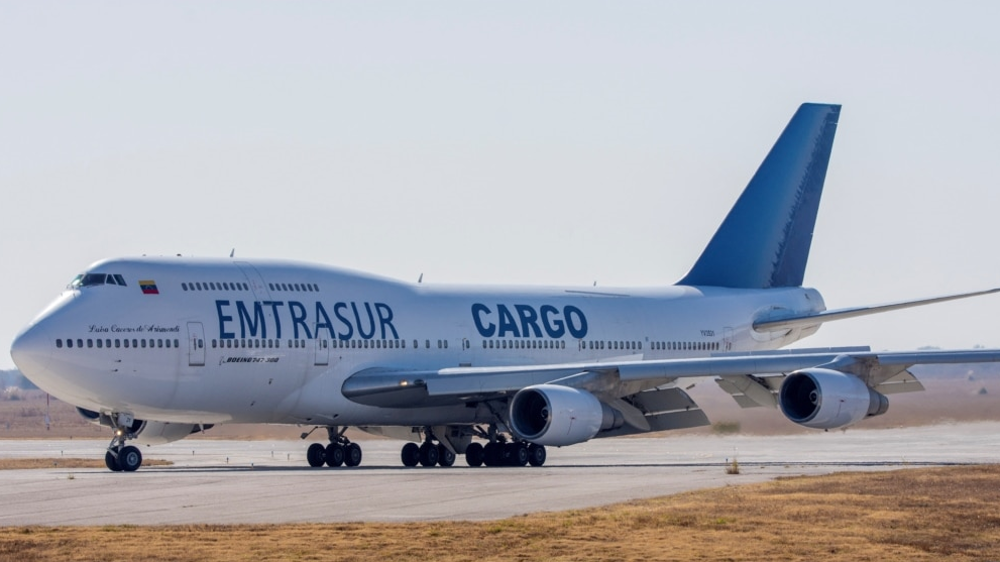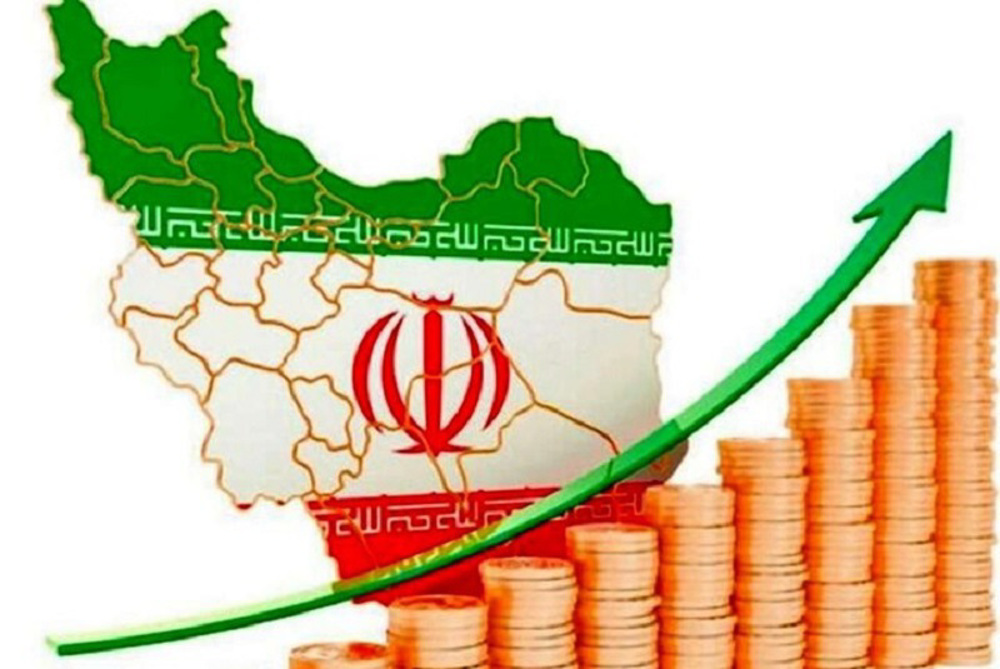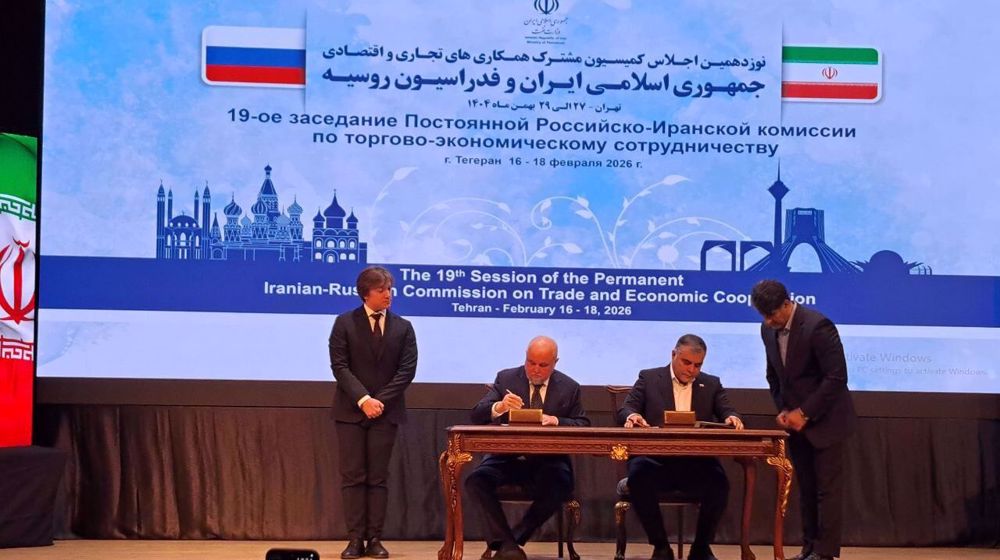Argentina releases crew of Venezuelan plane, including Iranian
Argentine authorities say they have allowed 12 crew members of a Venezuelan plane detained in June at the request of the US to leave.
An appeals court ruled Tuesday that 11 Venezuelans and one Iranian travelling on board the plane held at Ezeiza airport can depart.
Authorities also called on the judge to conclude investigation into the remaining seven crew within 10 days, local media reports said.
He was ordered to speed up and conclude "all pending proceedings, the definition of the procedural situation and the restrictions imposed on people and things", local daily Perfil reported.
Four Iranians and three Venezuelans will remain prohibited from leaving the country for further investigation of their case, it added.
One of the Iranians prevented from leaving is pilot Gholamreza Ghasemi who had to land his Boeing 747 cargo plane in Argentina on June 8 from Mexico with a shipment of auto parts after unsuccessfully attempting to enter Uruguay.
Both Venezuela and Iran, which signed a 20-year cooperation accord in June, are under draconian US sanctions.
Washington says the sale of the plane to Emtrasur, a subsidiary of Venezuelan state carrier Conviasa, in October 2021 violated US sanctions.
Venezuelan President Nicolas Maduro has accused the US of trying "to steal from us a gigantic, modern cargo airplane".
Iran has expertise in flying Boeing 747s because it has a number of them that date from the pre-Revolution era. These older planes are still flying and Iranian pilots have some unique expertise in keeping them aloft and extending their abilities.
The Iranian pilot’s son, Hossein Ghasemi, recently said that his father had flown with many airlines in the past and had flown to Dubai, Damascus, Paris and other cities.
Since the sale the plane, his father had been assigned by the Iranian Civil Aviation Organization to train Venezuelan pilots. He had spent a year training the Venezuelans and made various flights in South America.
“He flew more than 100 times on different routes in Latin America. As a result, the presence of him and other Iranian crew in Latin America was not a new and strange event, and it is quite natural that when a country buys an airplane, it uses the master pilot of that country to transfer the technical knowledge of that airplane, it is a very common thing in the world,” Hossein told Fars news agency.
Then something went wrong. As opposition parties and others became aware of the plane, someone made a request to Uruguay. Uruguay’s Interior Minister Luis Alberto Heber was quoted as saying in June that authorities had received a “formal warning from Paraguayan intelligence”.
Argentine authorities have accused Captain Ghasemi of having ties to Iran’s Islamic Revolution Guards Corps (IRGC).
According to Fars, Israel was responsible for the plane being diverted.
The plane was detained “with the coordination of the United States, the Zionist regime and England”, Hossein said.
In the interview with Al Mayadeen Espanol, Captain Ghasemi said he was a flight instructor and had no ties to the Iranian military except for fighting in the Iran-Iraq War (1980-1988) as a volunteer in the Basij Popular Mobilization Forces.
His son says even having a background in the military does not make a pilot subject to prosecution.
“This is a natural thing,” Hossein says, explaining that pilots all over the world fly commercial flights after retiring from military flights.
“Most of the pilots in America and other countries are military at first and after retirement, they work in different airlines... In fact, no one can tell American, British and European pilots why they were engaged in military flights before commercial flights,” he added.
'Blatant war crime': Iran denounces US-Israel strikes on Gandhi hospital in Tehran
IRGC spox: 650 casualties for US military in two days as Iran missiles force aircraft carrier to fle
Tehran warns of false-flag operations, says Israel ‘undoubtedly’ seeking to widen war
New wave of attacks devastates key US base in Bahrain as Iran strikes back
Melania Trump chairs UN children's meeting as Iran buries kids killed in US-Israeli attack
Why Iran’s Leader refused special protection, leading from the front until last breath
Hezbollah strikes Israeli surveillance, military base in Golan Heights, occupied lands
Iran holds funeral for scores of schoolgirls murdered in US-Israeli aggression










 This makes it easy to access the Press TV website
This makes it easy to access the Press TV website